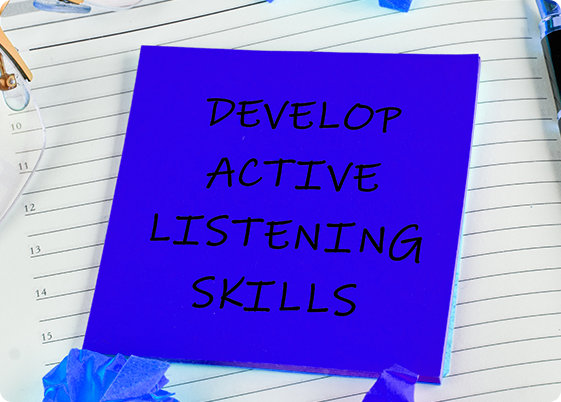
Providing excellent customer service is essential for any business. Whether you're working in a call centre, retail, or handling online support, your interactions with customers can significantly affect their loyalty and perception of your company. Mastering the do's and don’ts of customer service will set you apart and help you deliver outstanding service. In this article, we’ll break down the customer service do's and don’ts you need to follow to succeed in any customer-facing role. Whether you’re just starting your career in customer service jobs in Jamaica or you’re already an experienced professional, knowing the do’s and don’ts in customer service is crucial to long-term success.
Top 5 Customer Service Dos

Do Listen Actively
One of the most important skills in customer service is active listening. It’s not just about hearing what the customer is saying, but truly understanding their needs. Active listening shows the customer that you are paying attention and genuinely care about their concerns. When you listen actively, you not only gain clarity about the issue but also create a rapport with the customer.
For example, if a customer calls in with an issue about a product, instead of interrupting them mid-sentence, let them explain the problem fully. You can paraphrase or summarise their issue to ensure you understand. This approach shows empathy and assures the customer that you’re there to help.

Communicate Effectively
Clear and concise communication is vital in customer service. A customer wants to feel understood, and they also want a solution to their issue as quickly as possible. If you provide vague answers or explanations, you risk frustrating the customer further. Always aim to communicate in a way that’s both informative and easy to understand.
For instance, when explaining a policy or a process, be sure to break down the steps and avoid using jargon or overly complex language. A key part of customer service do's and don’ts is ensuring that your communication is transparent and helpful.

Do Personalise Your Service
Personalisation is crucial for making the customer feel valued. Rather than giving generic responses, take the time to address the customer by name, reference past interactions (if applicable), and customise your solution to fit their specific needs. Personalised service helps to build a connection and shows that you are willing to go the extra mile.
For example, if a customer has ordered a product multiple times, acknowledging their loyalty and offering them a special discount or a personalised recommendation can enhance their overall experience.
Take Responsibility for Mistakes
In customer service, mistakes are inevitable. However, what separates good service from bad service is how those mistakes are handled. If your company or product has caused the customer an issue, take responsibility and show that you’re committed to solving the problem. Avoiding responsibility will only worsen the situation, and the customer will feel like their concerns are being ignored.
For instance, if there’s a delay in shipping or the wrong item was sent, immediately acknowledge the mistake, apologise sincerely, and assure the customer that steps will be taken to rectify the situation. Owning up to mistakes builds trust with customers and shows professionalism.
Follow Up with the Customer
Once you’ve resolved a customer’s issue, don’t let the conversation end there. Following up with the customer is an excellent way to ensure that they’re satisfied with the resolution and that the problem doesn’t recur.
For example, if a customer had an issue with a product, you could follow up a few days later with an email or call to make sure the new product works properly. This gesture improves customer satisfaction and strengthens your company’s reputation for excellent service.
Top 5 Customer Service Don’ts
Don’t Ignore the Customer
One of the cardinal customer service don’ts is ignoring the customer. Whether the customer is asking for help, filing a complaint, or requesting information, always respond promptly. Ignoring a customer’s enquiry or concern can make them feel unimportant and cause their frustration to grow.
If a customer has been waiting for a response, it’s essential to acknowledge their patience and provide them with the necessary assistance as soon as possible. Even if you don’t have an immediate solution, always keep the customer informed about the status of their request.
Don’t Argue with the Customer
While it’s natural to want to defend yourself or your company, arguing with the customer is never a good idea. Arguments escalate the situation and can make the customer feel disrespected. Instead, approach each situation with a calm, professional demeanour. Even if the customer is wrong or misunderstood, your role is to educate and resolve the situation, not to argue.
If a customer becomes upset about a policy or procedure, rather than arguing, empathise with their frustration and explain the situation clearly. For example, “I understand that this might be frustrating for you, and I’m happy to walk you through the policy so you’re aware of all the details.”

Don’t Make Promises You Can’t Keep
One of the most critical do's and don’ts for customer service is to never make promises that you can’t deliver on. Customers rely on the information they are given, so it’s important to be realistic and honest about what you can and cannot do. Making promises that you can’t keep only leads to disappointment and dissatisfaction.
For instance, if a customer asks if their order can be delivered by a specific date, only commit to the delivery time if you are sure it can be met. If not, explain the realistic timeline. This builds credibility and avoids breaking customer trust.

Don’t Take It Personally
Customer service professionals often face complaints, frustrations, and even angry customers. However, it’s essential not to take these interactions personally. Remember that the customer is upset with the situation, not with you as a person. Responding emotionally or defensively will only escalate the issue.
If a customer is rude or hostile, keep your composure and remain calm. Don’t internalise the customer’s frustration. This shows maturity and professionalism, no matter the tone of the customer.
Conclusion
Mastering the do's and don’ts of customer service is essential for anyone working in customer-facing roles. Whether you're working in customer service jobs in Jamaica or in a more global context, following the customer service do's and don’ts will improve your interactions, build trust with your customers, and help your company maintain a positive reputation. By keeping these do's and don’ts for customer service in mind, you’ll create a more positive and productive environment for both you and the customers. Remember, great customer service is not just about solving problems—it’s about building relationships, fostering loyalty, and making every customer feel heard, valued, and appreciated.
One of the major tips to a successful career in customer service jobs is understanding the do's and don’ts of customer service. The customer service do's and don’ts not only guide how you interact with customers, but they also shape your professional growth, leading to better outcomes for both you and the company you represent.
Frequently Asked Questions
What are the 7 qualities of bad customer service?
Seven qualities of bad customer service include unresponsiveness, rudeness, lack of product knowledge, long wait times, ignoring customer concerns, failure to resolve issues, and a lack of empathy. These factors can lead to frustrated customers and damage a company’s reputation.
What is the golden rule of customer service?
The golden rule of customer service is to treat customers as you would like to be treated. Providing respectful, helpful, and efficient service builds trust and satisfaction.
What are the biggest mistakes in customer service?
The biggest mistakes in customer service include failing to listen actively, making promises that can’t be kept, being unprofessional or dismissive, transferring customers without resolution, and not following up on complaints.
How can I do good customer service?
To do good customer service, focus on active listening, clear communication, and empathy. Respond promptly and professionally, take responsibility for mistakes, and ensure a personalised, respectful experience. Following up to ensure satisfaction and continuously improving service processes helps create lasting customer loyalty.
 Jamaica
Jamaica Canada
Canada Colombia
Colombia India
India Philippines
Philippines UK
UK US
US SA
SA



